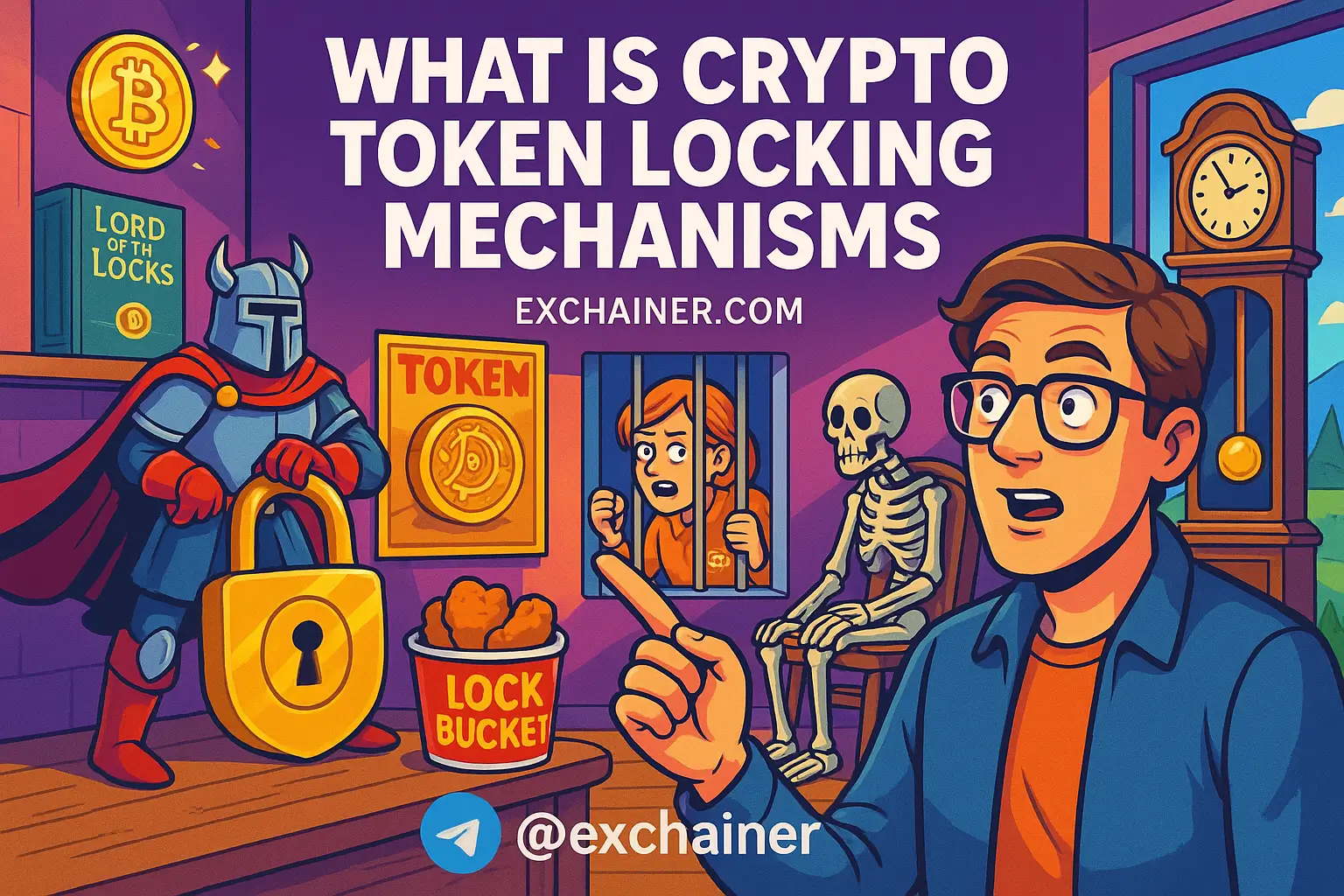In today’s evolving financial and technological landscape, the term “security token” is gaining increased attention from investors, regulators, and blockchain enthusiasts alike. But what exactly is a security token, and how does it function in the real world of digital finance? This comprehensive guide unpacks the concept, explores how security tokens work, outlines their benefits, and highlights key regulatory and practical considerations. Whether you’re a curious newcomer or a seasoned professional, this guide will equip you with a foundational understanding of this transformative asset class.
Understanding Security Tokens: Definition and Purpose
A security token is a digital representation of ownership or rights to an asset, which has been tokenized and recorded on a blockchain. In essence, it’s the blockchain-based counterpart to traditional securities like stocks and bonds. When an asset—such as a company’s shares, real estate, or even fine art—is tokenized, its ownership is converted into a unique digital token. This transformation leverages the efficiency, transparency, and security of distributed ledger technology, making it easier to buy, sell, and transfer ownership compared to traditional paper-based certificates.
The primary purpose of a security token is to record ownership of an underlying asset on a blockchain. Investors who purchase these tokens gain the same rights as they would if they held the physical asset, such as dividends, profit shares, or voting rights. However, unlike traditional securities, security tokens are managed and transferred using smart contracts, which automate compliance and transaction processing.
Key Takeaways
- Digital Representation: Security tokens are digital, blockchain-based assets that stand in for real-world securities.
- Ownership or Rights: They represent ownership or rights to underlying assets, such as equity, debt, or even real estate.
- Tokenization Process: The creation of security tokens involves the process of “tokenization,” where an asset’s ownership is converted into a digital token stored on a blockchain.
How Do Security Tokens Work?
The creation and management of security tokens involve several steps, each designed to ensure legal compliance, security, and ease of use.
The Tokenization Process
- Asset Selection: The issuer selects the asset to be tokenized. This could be anything from company equity, real estate, bonds, or even art and intellectual property. The key is that the asset must be legally recognized as a security.
- Smart Contract Creation: Smart contracts are written and deployed on a blockchain. These digital contracts define the token’s behavior, such as how it’s issued, transferred, and redeemed, and often include built-in compliance features. For example, a smart contract might automatically enforce Know Your Customer (KYC) and Anti-Money Laundering (AML) checks before a token can change hands.
- Token Issuance: Once the smart contract is deployed, the security tokens are minted and offered to investors through a regulated process known as a Security Token Offering (STO). Unlike Initial Coin Offerings (ICOs), STOs are subject to strict regulatory oversight, ensuring that investors are protected and that the tokens meet all relevant legal requirements.
Blockchain Advantages
Security tokens benefit from the inherent features of blockchain technology:
- Transparency: All token ownership and transactions are publicly recorded and verifiable.
- Immutability: Once recorded, transaction data cannot be altered, reducing the risk of fraud.
- Efficiency: Smart contracts automate many processes, such as dividend payments and compliance checks, making transactions faster and less manual.
Types of Security Tokens
Security tokens can represent a wide range of underlying assets, each with its unique characteristics and regulatory considerations.
Equity Tokens: Represent ownership in a company, similar to traditional stocks. Holders may receive dividends or voting rights.
Debt Tokens: Function like bonds, entitling holders to repayment of principal and interest.
Real Estate Tokens: Represent fractional ownership of property, enabling easier access and liquidity in real estate markets.
Hybrid Tokens: Combine features of both equity and debt, offering a blend of fixed and variable returns.
Asset-Backed Tokens: Represent ownership of physical assets such as fine art, commodities, or intellectual property.
Security Tokens vs. Utility Tokens: What’s the Difference?
It’s crucial to understand that not all blockchain tokens are the same. The two main categories are security tokens and utility tokens.
- Security Tokens: Represent ownership or rights to underlying assets and are subject to securities regulations. Investors expect to profit from dividends, interest, or capital appreciation.
- Utility Tokens: Grant holders access to a product or service within a specific ecosystem, such as using a token to access a platform or redeem rewards. Utility tokens are not considered securities and are not subject to the same regulatory scrutiny.
SEO Tip: Distinguishing between security and utility tokens is essential for both compliance and investment clarity. Always check whether a token is classified as a security by regulators before investing.
Regulatory Landscape: Why Compliance Matters
Security tokens are subject to the same regulatory frameworks as traditional securities. In the United States, for example, the Securities and Exchange Commission (SEC) oversees the issuance and trading of security tokens. The SEC applies the Howey Test to determine whether a token qualifies as a security: if investors expect profits from the efforts of others, the token is likely to be classified as a security and must comply with all relevant laws.
Regulation provides several benefits:
- Investor Protection: Compliance with securities laws helps protect investors from fraud and malpractice.
- Market Confidence: Regulated markets attract institutional investors and promote trust in blockchain-based financial products.
Key Regulatory Steps for Issuers
- Registration: Security tokens must be registered with the relevant regulatory body, such as the SEC in the U.S.
- Disclosure: Issuers must provide detailed information about the asset, risks, and terms of the investment.
- KYC/AML: Investors must undergo identity verification and anti-money laundering checks before purchasing tokens.
Benefits of Security Tokens
Security tokens offer several advantages over traditional securities, making them an appealing option for both issuers and investors.
Fractional Ownership
Tokens can represent small fractions of high-value assets, enabling broader market access.
Enhanced Liquidity
Security tokens can be traded 24/7 on secondary markets, increasing liquidity for traditionally illiquid assets like real estate.
Automated Compliance
Smart contracts embed regulatory rules, streamlining compliance and reducing administrative costs.
Transparency & Security
Blockchain’s immutable ledger ensures transparent and secure record-keeping.
Global Access
Investors from around the world can participate in tokenized asset markets, subject to local regulations.
Real-World Applications and Use Cases
Security tokens are already being used in a variety of innovative ways, transforming how investors access and own assets.
- Equity in Startups and Private Companies: Security tokens enable startups to raise capital by offering equity to a global pool of investors through blockchain platforms.
- Fractional Real Estate Ownership: Investors can purchase tokenized shares in commercial or residential properties, making real estate investment more accessible and liquid.
- Asset-Backed Investments: Tokens can represent ownership of art, collectibles, or commodities, allowing for fractional investment and easier trading.
- Automated Dividends and Payouts: Smart contracts can automatically distribute profits, interest, or dividends to token holders, reducing administrative overhead.
Risks and Challenges
While security tokens offer significant advantages, they also come with risks and challenges that investors and issuers must consider.
- Regulatory Uncertainty: The legal landscape for security tokens is still evolving, and compliance requirements may change over time.
- Market Maturity: Secondary markets for security tokens are less developed than traditional stock exchanges, which can limit liquidity and price discovery.
- Technology Risks: Smart contract vulnerabilities, platform failures, and cybersecurity threats can undermine the security and reliability of tokenized assets.
- Investor Education: Many investors are unfamiliar with blockchain technology and the unique risks and benefits of security tokens, highlighting the need for clear communication and education.
The Future of Security Tokens
The security token market is poised for significant growth as more institutions recognize the benefits of blockchain-based securities. Advances in regulatory clarity, technological infrastructure, and investor education are expected to drive broader adoption over the next decade.
Key trends to watch:
- Institutional Adoption: Major financial institutions are exploring security tokens as a way to streamline operations and expand investment opportunities.
- Interoperability: Standardization and interoperability between different blockchain platforms will make it easier to issue, trade, and manage security tokens across global markets.
- Regulatory Harmonization: Efforts to harmonize securities regulations across jurisdictions will facilitate cross-border investment and increase market confidence.
Conclusion
In summary, security tokens represent a revolutionary fusion of traditional securities and blockchain technology. By leveraging the transparency, efficiency, and security of distributed ledgers, these digital assets unlock new opportunities for investors and issuers alike. As the regulatory environment matures and technological barriers are overcome, security tokens are set to transform the global financial landscape, offering greater access, liquidity, and automation than ever before. Whether you’re an investor, issuer, or simply curious about the future of finance, understanding security tokens is essential for navigating the next wave of innovation.
Remember: Always conduct thorough due diligence and consult with legal and financial professionals before investing in security tokens. The world of digital securities is exciting, but it’s also complex and rapidly evolving—staying informed is your best protection.
It’s time to take action—ensure that you’re equipped with knowledge and strategies to thrive in any market condition. If you’re looking for more resources and guides, dive deeper into the world of cryptocurrency on Exchainer Crypto 101, read the latest Exchange Reviews, catch up on News, or explore valuable Tools and Wallets. Start your journey into the world of cryptocurrency today!












